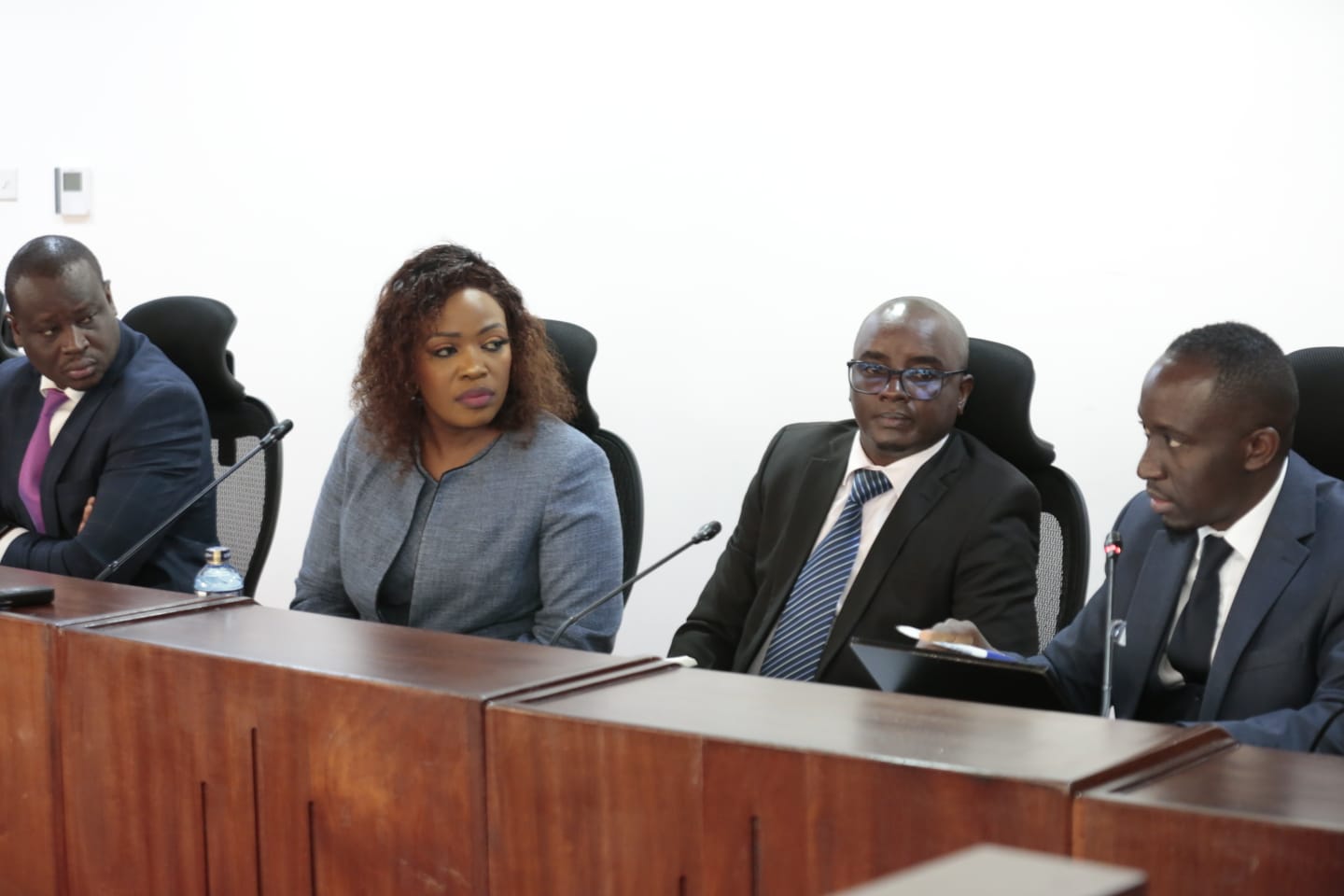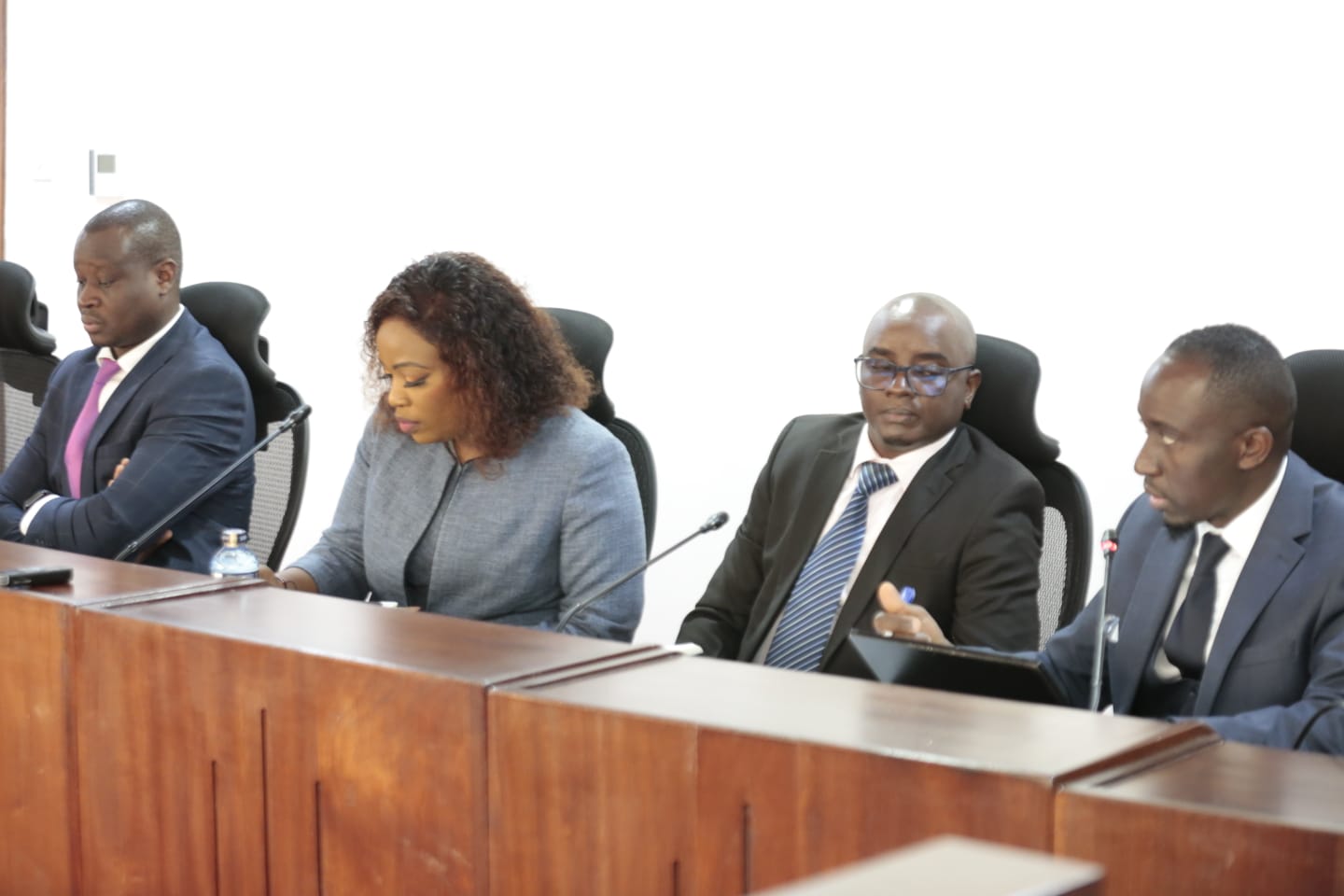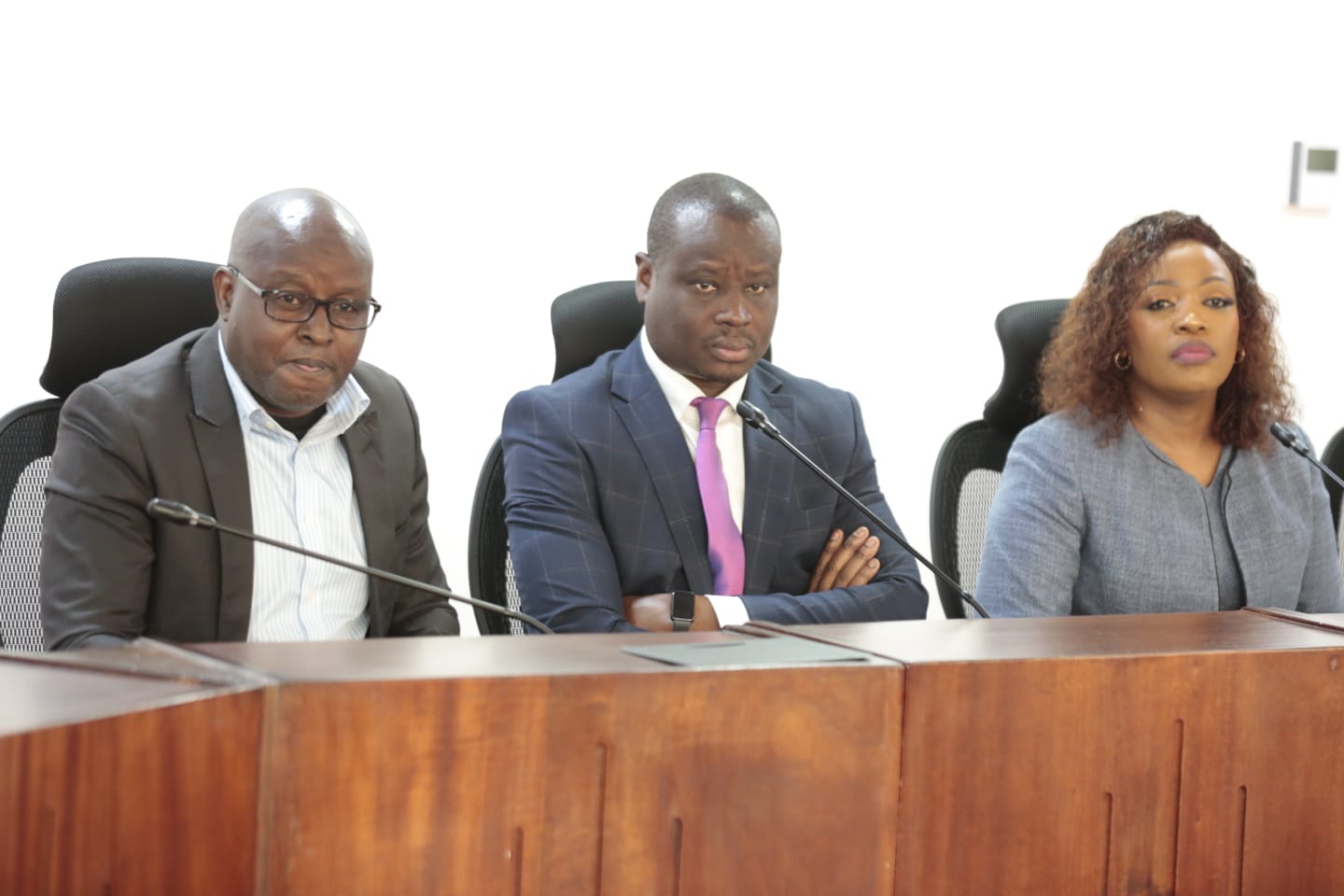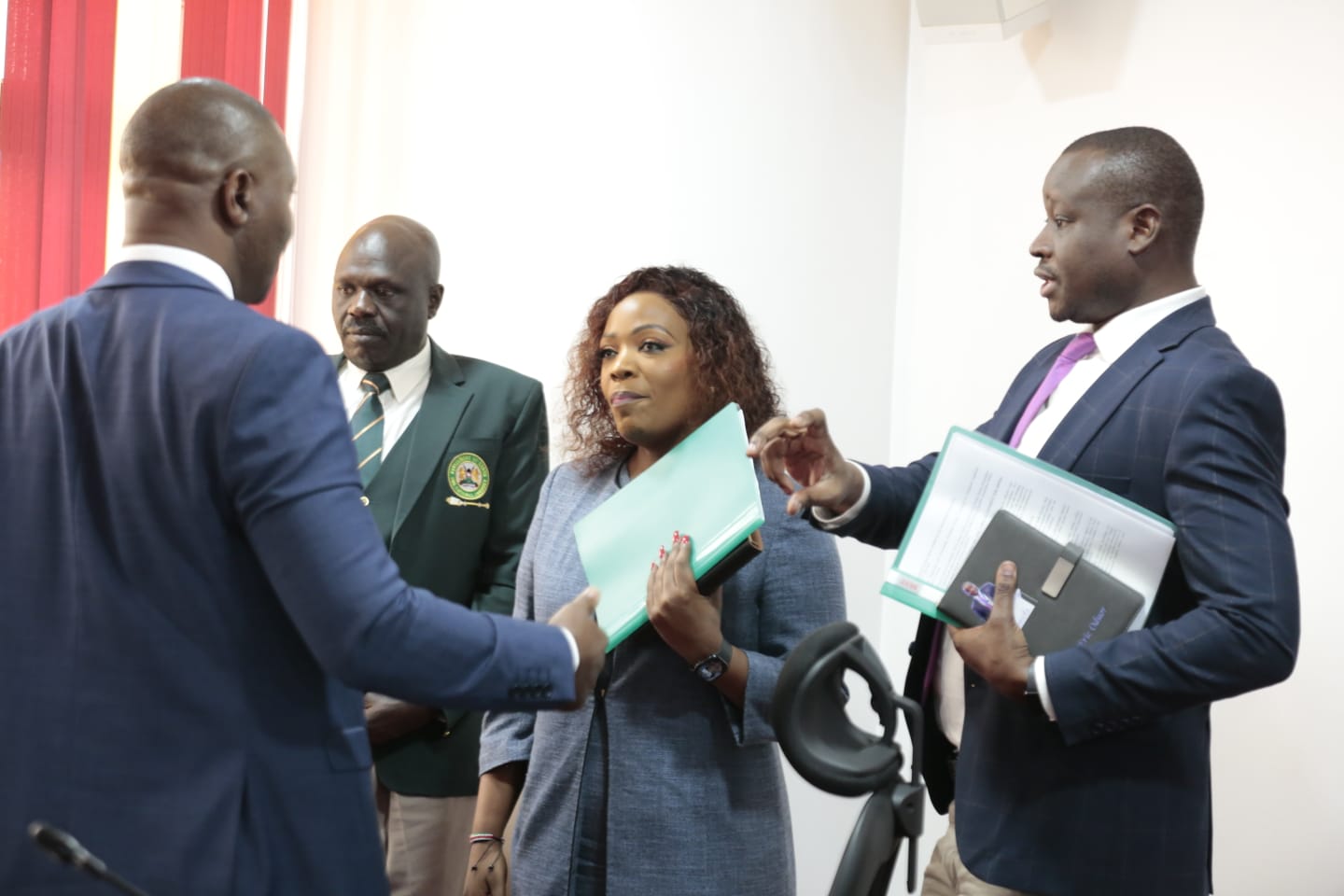
 Media representatives: Erick Oduor ( KUJ Secretary General), Zubeidah Kananu(President Kenya Editors Guild), Editors Guild member and Radio Africa Group Digital Editor Francis Mureithi, and the KUJ lawyer Ibrahim Oduor when they appeared before the Committee on Delegated Legislation regarding the Code of Conduct for Media Practice, 2025 at, Bunge Towers on July 22, 2025./HANDOUT
Media representatives: Erick Oduor ( KUJ Secretary General), Zubeidah Kananu(President Kenya Editors Guild), Editors Guild member and Radio Africa Group Digital Editor Francis Mureithi, and the KUJ lawyer Ibrahim Oduor when they appeared before the Committee on Delegated Legislation regarding the Code of Conduct for Media Practice, 2025 at, Bunge Towers on July 22, 2025./HANDOUT
Parliament has now been urged to urgently ratify the revised Code of Conduct for Media Practice, 2025, without any further amendments.
According to media industry players, any delays or major amendments could undermine the broad consensus achieved through a nationwide public participation process that informed the development of the Code.
In a memorandum submitted to the National Assembly’s Committee on Delegated Legislation, chaired by Gichugu MP Gichimu Githinji, the Kenya Media Sector Working Group, co-chaired by the Kenya Editors Guild and the Kenya Union of Journalists, emphasised the need for the swift adoption of the code.
“We strongly urge the honourable Committee to ratify the Code as gazetted, save for any minor amendments recommended by the House,” reads the memorandum.
“Any delays or attempts to introduce substantive amendments at this stage risk disrupting the carefully balanced consensus achieved and weakening the very framework designed to strengthen ethical journalism.”
 Media representatives: Erick Oduor (KUJ Secretary General), Zubeidah Kananu(President, Kenya Editors Guild), Editors Guild member and Radio Africa Group Digital Editor Francis Mureithi, and the KUJ lawyer Ibrahim Oduor when they appeared before the Committee on Delegated Legislation regarding the Code of Conduct for Media Practice, 2025, at Bunge Towers on July 22, 2025./HANDOUT
Media representatives: Erick Oduor (KUJ Secretary General), Zubeidah Kananu(President, Kenya Editors Guild), Editors Guild member and Radio Africa Group Digital Editor Francis Mureithi, and the KUJ lawyer Ibrahim Oduor when they appeared before the Committee on Delegated Legislation regarding the Code of Conduct for Media Practice, 2025, at Bunge Towers on July 22, 2025./HANDOUTKEG was represented by its president, Zubeida Kananu, and Francis Mureithi (KEG member and Radio Africa Group digital editor), while Eric Oduor appeared on behalf of the KUJ.
The officials emphasised that the revised Code is crucial for guiding ethical journalism in an era of rapidly changing technology and media consumption habits.
The updated Code replaces the 2007 version and integrates new provisions covering AI use in journalism, moderation of user-generated content, and enhanced safeguards for children and vulnerable persons, responding directly to a court directive on child protection in media.
The Media Council of Kenya (MCK) led the review process, which included national consultations, technical workshops, and the solicitation of written submissions from the public, media professionals, and civil society.
 Kenya Editors Guild member and law lecturer Hassan Kulundu, KUJ Secretary General Erick Oduor and Kenya Editors Guild President Zubeidah Kananu when they appeared before the Committee on Delegated Legislation regarding the Code of Conduct for Media Practice, 2025, at Bunge Towers on July 22, 2025./HANDOUT
Kenya Editors Guild member and law lecturer Hassan Kulundu, KUJ Secretary General Erick Oduor and Kenya Editors Guild President Zubeidah Kananu when they appeared before the Committee on Delegated Legislation regarding the Code of Conduct for Media Practice, 2025, at Bunge Towers on July 22, 2025./HANDOUTThe memorandum insists that the Code upholds and enhances media freedom under Article 34 of the Constitution, rather than restricting it.
It further highlights the Code’s role in promoting professionalism, public trust, and editorial independence while helping combat misinformation and irresponsible reporting.
They, however, raised some concerns; key among them is the fact that the Media Council has operated for over two years without a board, casting doubt on the legal mandate of the Secretariat, which led the review process.
They also flagged the use of the word “shall” in certain provisions, particularly those relating to verification and accuracy requirements, as overly rigid, potentially making full compliance impractical in real-time reporting scenarios.
They recommended that the Ministry of ICT and the Attorney General consider issuing a corrigendum to clarify such language.
Despite these concerns, the media groups maintained that the Code represents a critical step forward and urged Parliament to endorse it promptly to allow for immediate implementation.
“Timely ratification will enable swift implementation, which is crucial for fostering ethical journalism and ensuring robust, public interest reporting in Kenya,” the memorandum further states.
 Media stakeholders chat with Gichugu MP Gichimu Githinji when they appeared before the Committee on Delegated Legislation regarding the Code of Conduct for Media Practice, 2025, at Bunge Towers on July 22, 2025./HANDOUT
Media stakeholders chat with Gichugu MP Gichimu Githinji when they appeared before the Committee on Delegated Legislation regarding the Code of Conduct for Media Practice, 2025, at Bunge Towers on July 22, 2025./HANDOUTMCK said it reviewed the Code of Conduct to address emerging issues and align with current realities.
“The new code will replace the 15-year-old Code of Conduct for the Practice of Journalism in Kenya, following a court directive to develop a revised code incorporating child protection regulations,” it said.
This came after the Communications Authority’s Broadcast and Media Standard was declared unconstitutional.
Aligned with the evolving media landscape, the code addresses changes driven by technological advancements and innovations impacting journalistic practices.
The Council said the review anticipates a transition to the Code of Conduct for Media Practice, which will further strengthen ethical standards and regulatory frameworks for the media industry.
The review focuses on regulatory gaps, enhancing industry compliance, incorporating technological advancements, and adopting best practices.













